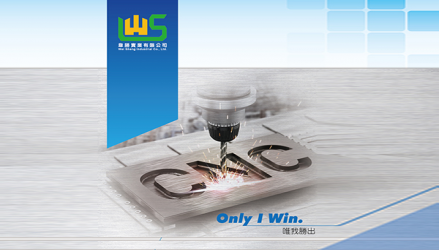Technology

CNC Machining Technology and Applications in Various Industries
CNC Machining Technology
CNC (Computer Numerical Control) machining technology is a key technology in modern manufacturing, using computer control to operate machine tools (such as lathes, mills, grinders, etc.) for high-precision cutting and shaping operations. The development of this technology has revolutionized traditional manufacturing, making production processes more automated, precise, and efficient.
Key Technical Features
• High Precision and Consistency: CNC machining technology can achieve micron-level precision and, due to the repeatability of computer control, ensures that each part meets design specifications.
• Multi-Axis Coordination: Modern CNC machines often feature multi-axis capabilities, such as four-axis, five-axis, or six-axis machining, allowing for flexible processing of complex shapes and the ability to complete multiple machining steps in one setup.
• Automation and Intelligence: CNC machining technology seamlessly integrates with CAD/CAM software, automating the entire process from design to production. Additionally, intelligent machining systems combined with AI and IoT technologies can monitor and optimize the machining process in real-time.
Application Industries
CNC machining technology is widely used across various high-demand manufacturing sectors:
1. Aerospace
• Application: In the aerospace industry, CNC machining is primarily used to manufacture aircraft structural components, turbine blades, engine parts, etc., which require high precision and material quality.
• Features: Utilizes high-strength alloys and composite materials, with multi-axis machining to ensure structural strength and weight optimization.
2. Automotive Manufacturing
• Application: In the automotive sector, CNC machining is used to produce engine blocks, gears, transmission parts, and more.
• Features: Enables efficient batch production, ensuring the precision of each component, and enhancing vehicle performance and reliability.
3. Medical Devices
• Application: CNC machining technology is employed in the medical field to manufacture precision surgical instruments, implants (such as artificial joints, bone screws), and more.
• Features: Requires high precision and biocompatibility, typically using titanium alloys, stainless steel, and medical-grade plastics.
4. Electronics and Semiconductors
• Application: CNC machining is used to produce precision electronic components, semiconductor equipment parts, and heat sinks, among other products.
• Features: Precision and micro-machining techniques are critical, often involving micron-level machining accuracy.
5. Mold Manufacturing
• Application: CNC machines are widely used in mold manufacturing, particularly for plastic and die-casting molds.
• Features: High precision and the ability to process hard materials ensure the durability and quality of the molds.
As smart manufacturing and Industry 4.0 continue to advance, CNC machining technology is expected to further evolve towards higher precision, multifunctionality, and intelligence. In the future, more factories will adopt digital twin technology, AI optimization, and 5G communication technology to achieve more efficient and flexible production methods.
These technologies and applications highlight the central role of CNC machining technology in modern manufacturing and emphasize its potential and importance for future development.